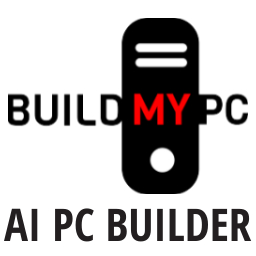OpenCart
OpenCart offers a complete e-commerce solution with customizable storefronts, flexible payments, and robust inventory management, empowering teams to sell online effortlessly.
Learn moreOpenCart websiteOpenCart offers a complete e-commerce solution with customizable storefronts, flexible payments, and robust inventory management, empowering teams to sell online effortlessly.
Learn moreOpenCart websiteJumpseller is an all-in-one e-commerce platform, empowering businesses to create branded storefronts, manage inventory, and streamline checkout with flexible payment options—all seamlessly integrated.
Learn moreJumpseller website
No reviews yet
Entry Pricing: Free
Mirakl Marketplace streamlines e-commerce with an all-in-one platform for storefronts, payments, and fulfillment, enabling quick setup and seamless operations for B2B and B2C sales.

No reviews yet
Find the best deals across Amazon warehouse and flash deals

No reviews yet
SAP Commerce Cloud (Hybris) streamlines e-commerce with a comprehensive platform for storefronts, payments, and fulfillment, enabling businesses to scale efficiently and enhance customer experiences.

No reviews yet
Shift4Shop offers a comprehensive e-commerce platform with built-in tools for storefront design, inventory management, flexible checkout, and seamless integrations, empowering your online sales growth.

No reviews yet
Ecwid by Lightspeed offers a comprehensive e-commerce platform with built-in tools for storefronts, payments, and fulfillment, enabling seamless selling and growth across multiple channels.

No reviews yet
Big Cartel offers a complete e-commerce solution with customizable storefronts, flexible checkout, and powerful inventory management, enabling seamless online selling for businesses of all sizes.

No reviews yet
Spryker Commerce OS offers a comprehensive e-commerce solution with integrated tools for storefront design, flexible checkout, and advanced inventory management, enabling seamless online selling.

No reviews yet
Entry Pricing: Free
Kibo Commerce offers a comprehensive e-commerce platform with integrated storefronts, flexible checkout, and robust inventory management, streamlining operations for seamless online selling.

No reviews yet
OroCommerce (B2B) offers a comprehensive e-commerce platform with built-in tools for catalog management, flexible checkout, and robust order fulfillment, tailored for seamless B2B transactions.

No reviews yet
Entry Pricing: Free
Shopline is an all-in-one e-commerce platform, enabling seamless storefront creation, flexible checkout, and robust inventory management, empowering businesses to sell efficiently online.

No reviews yet
Lightspeed eCom is a comprehensive e-commerce platform that streamlines online selling with integrated storefronts, flexible checkout, and powerful inventory management—all in one solution.

No reviews yet
Swell Commerce streamlines e-commerce with an all-in-one platform for storefronts, payments, and fulfillment, enabling teams to focus on selling without juggling multiple tools.

No reviews yet
The AI PC Builder allows anyone to put together a working custom PC with a single click, based on use case and budget, without having to worry about compatibility.

No reviews yet
Optimizely Commerce Cloud offers a complete e-commerce solution, integrating storefront, checkout, payments, and inventory management for seamless online selling and streamlined operations.

No reviews yet
Entry Pricing: Free
Spree Commerce offers a comprehensive e-commerce platform with built-in storefronts, flexible checkout, and seamless inventory management, empowering teams to sell effortlessly online.

No reviews yet
PrestaShop is an all-in-one e-commerce platform that streamlines storefront design, checkout, payments, and inventory management, empowering your business to grow effortlessly.

No reviews yet
Squarespace Commerce offers a complete e-commerce solution with seamless storefronts, flexible payments, and robust inventory management to streamline your online selling experience.
Launching and managing an online store manually can be incredibly complex. Building everything from scratch, including designing your website, listing products, setting up payment processing, arranging shipping, and tracking inventory, requires extensive time and technical expertise. That's why e-commerce platforms (also known as e-commerce software, tools, or apps) are essential for digital businesses. These solutions provide ready-made components for all the key parts of an online store, from product catalogs and secure shopping carts to payment gateways and shipping integrations. By using an e-commerce platform, you can focus on growing your business instead of dealing with technical challenges and repetitive tasks. E-commerce platforms come in both hosted all-in-one services (where the provider handles hosting and maintenance for you) and self-hosted open-source software that you run on your own server for maximum flexibility. Modern platforms also emphasize scalability, ensuring that your online store can grow seamlessly as your business expands.
E-commerce platforms are software solutions that enable businesses to build and run online stores. They provide the functionality needed to sell products or services on the internet, including tools for creating your website, listing products, managing a shopping cart, accepting payments, and handling orders and shipping. In short, an e-commerce platform serves as the foundation of an online shop, allowing you to manage everything from one dashboard instead of developing these systems from scratch.
Hosted e-commerce platforms (SaaS solutions) are provided by a company that manages your store's hosting, security, and software updates for you. They're easier to set up and require less technical work. In contrast, self-hosted platforms are open-source e-commerce software that you install and run on your own server or hosting. Self-hosting offers more control and customization options, but it means you are responsible for technical aspects like installation, updates, and security maintenance.
You should choose an e-commerce tool that covers all the essentials of selling online and is easy to use. Key features to consider include a website builder or customizable templates for your storefront, product catalog management to handle your product listings, a secure shopping cart with multiple payment options, and built-in shipping and tax calculation. It's also helpful if the platform provides inventory tracking, order management, SEO tools, marketing options like discount codes or email marketing, and integration with other software you use.
Yes, most e-commerce platforms are designed to handle payments, taxes, and shipping seamlessly. They integrate with payment gateways so you can accept credit cards, PayPal, and other payment methods securely at checkout. Tax calculation features are usually built in, allowing the correct sales taxes or VAT to be applied to orders based on customer location or your settings. For shipping, these platforms let you set shipping options (and often real-time rates from carriers), print shipping labels, and provide tracking information to customers.
Yes, e-commerce platforms are generally built to scale with your business. You can start with a small online store and grow it to handle more products and traffic without needing to change platforms. Hosted services often allow you to upgrade your plan or automatically allocate more resources as your store grows, while self-hosted software lets you expand your server capacity whenever necessary. In either case, a good e-commerce platform will support your growth and maintain performance as your customer base and order volume increase.
You don't need advanced technical skills to manage an online store on most e-commerce platforms. These systems provide user-friendly dashboards and drag-and-drop website editors that anyone with basic computer skills can use to add products, process orders, and update content. However, if you choose a self-hosted solution or want to heavily customize your store, you may need some technical knowledge for tasks like installing the software, managing a server, or modifying code. In those cases, having a developer's help or learning some web development basics will be beneficial.